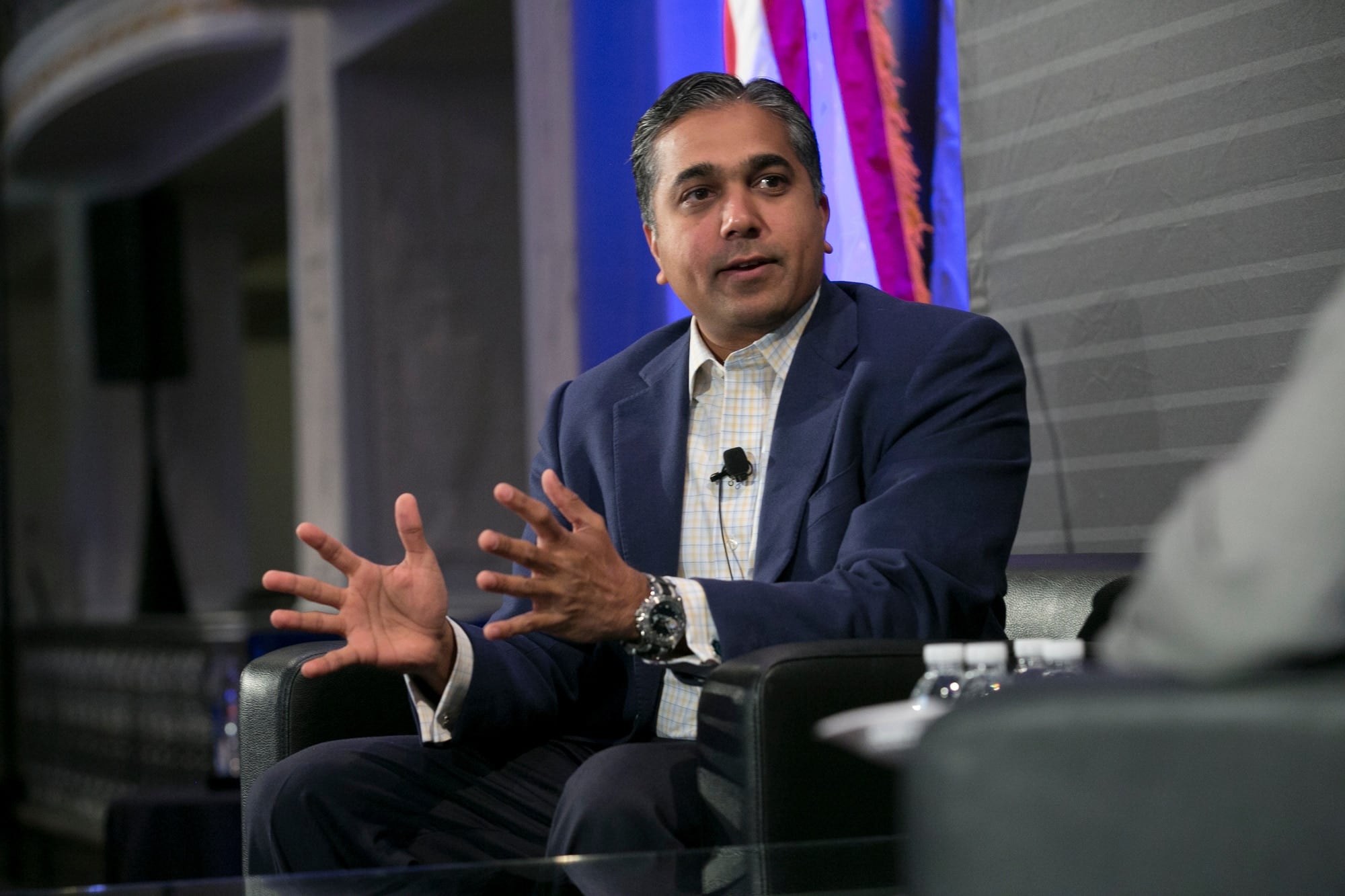WASHINGTON — Over the last year, the Defense Innovation Unit Experimental (DIUx) office has been at the core of Secretary of Defense Ash Carter’s push for greater innovation inside the Pentagon — so much so that Carter has the unit reporting directly to his office to bypass the typical department bureaucracy and ensure its success.
But with Carter not expected to continue in the administration of President-elect Donald Trump, the question of what happens to DIUx — and its managing director, Raj Shah — is up in the air.
Speaking at the Federal Times/Defense News Cybercon event Wednesday, Shah made the case for why keeping his unit as a direct report to the next secretary would make sense.
"Whenever you’re doing something new, particularly in a very large organization, that creates disruptions and challenges for lots of folks. And having the freedom of maneuver to try new things, take new approaches, has been critical to our success," Shah said. "So I would encourage the next administration to continue to enable not just us — we are one of several innovation efforts the department has done — encouraging that level of new thinking is valuable for all of us."
Asked whether he thinks having DIUx report directly to the secretary is a model that works, Shah said "I believe so, yes."
Click here for full coverage of CyberCon.
Along with a new president comes a new Congress. With Republicans maintaining control of both the House and Senate, it will largely be the same players on the defense committees deciding the fate of Shah’s unit — one of whom indicated the office may have to justify itself going forward.
On Wednesday morning, Rep. Mike Turner, R-Ohio, told an audience at the Heritage Foundation that DIUx would be one of a "number of areas where we are going to have very tough debates in the new administration," but did not go into further detail about his views on the office.
Shah said he was unaware of Turner’s comments, but noted oversight from the Hill is part of their job requirement, adding that DIUx "absolutely" has good relations with Congress. Shah praised the 2016 National Defense Authorization Act language that made it easier for the Pentagon to sole-source unique products that had been prototyped.
"My ask, and my hope and sense, is innovation is not a partisan issue. And having the opportunity to continue to try new things, make mistakes, understand what doesn’t work so well, is what will be critical for us in a rapidly changing threat environment where the adversaries are not restricted by regulations and policy," Shah said.
One thing that may endear the unit to Congress: Shah indicated the group will not be asking for a major plus-up in funding for the fiscal year 2018 budget request.
"We don’t do all the funding ourselves, we do a co-investment. When a service comes to us for help we ask them to put resources, and we put resources" as well, Shah said. "So right now we’re less fiscally constrained than we are just HR, making sure we are executing properly."
DIUx awarded 12 contracts, worth roughly $36 million, in FY16, with $8.3 million of that funding coming from Shah’s office and the rest from co-investment. He said Wednesday there are another 15 contracts in the works.
"So again, I think we have the first few [programs] out the door, we have another 15 in the pipeline, let’s resource those and then we’ll rest on the results before we discuss increasing resources," he said.
While reluctant to identify those 15 contracts, Shah said they fall into roughly five buckets: autonomous systems; machine learning and artificial intelligence; networking and cyber technologies with an emphasis on defensive capabilities; commercial space, including payloads and sensors; and biotechnology.
Shah also threw the brakes onto comments made from Carter in previous weeks about the need for more DIUx offices, noting "we are a relatively small office, so we can’t have offices everywhere."
Instead, he said, the goal is to use the three existing DIUx offices in Silicon Valley, Boston and Austin as the headquarters for a broader network of reserve forces around the country who can bring experience and connections from their day jobs at tech companies to the Pentagon.
Joe Gould in Washington contributed to this report.
Aaron Mehta was deputy editor and senior Pentagon correspondent for Defense News, covering policy, strategy and acquisition at the highest levels of the Defense Department and its international partners.






